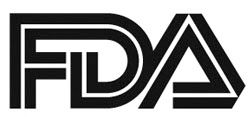FDA Grants Breakthrough Therapy Designation To First-Line Enfortumab Vedotin/Pembrolizumab in Bladder Cancer
The FDA has granted Breakthrough Therapy Designation to enfortumab vedotin plus pembrolizumab for the treatment of patients with unresectable locally advanced or metastatic urothelial cancer who are unable to receive cisplatin-based chemotherapy in the first-line setting.

The FDA has granted Breakthrough Therapy Designation to enfortumab vedotin (Padcev) plus pembrolizumab (Keytruda) for the treatment of patients with unresectable locally advanced or metastatic urothelial cancer who are unable to receive cisplatin-based chemotherapy in the first-line setting, Seattle Genetics announced in a press release.1
Preliminary data from the dose-escalation cohort and expansion cohort A of the phase Ib/II EV-103 study served as the basis for this designation. At a median follow-up of 11.5 months, co-developer Astella Pharma, Inc, reported that the study continues to meet its safety and efficacy outcomes.2The most recent trial data, which were presented at the 2019 European Society of Medical Oncology (ESMO) Annual Meeting showed encouraging efficacy and tolerable safety with the combination.
As of the data cutoff date of February 20, 2019, the preliminary confirmed overall response rate (ORR) was 62%, which included a 14% complete response rate. The disease control rate was 90%. The most common treatment-emergent adverse events (TEAEs) were fatigue (66%) decreased appetite (52%), alopecia (45%), and diarrhea (41%). Of these TEAEs, 14% of the fatigue cases were grade 3 or higher, as were 3% of the diarrhea cases. The adverse events (AEs) of clinical interest included rash (45%), peripheral neuropathy (52%), and immune-mediated events (17%). Of these AEs, 14% of the patients who experienced rash had a grade 3 or higher toxicity. Additionally, 3% of patients with peripheral neuropathy were grade 3 or above. Seventeen percent of the patients who experienced immune-mediated events required systemic steroid treatment. In total, 7% of patients discontinued treatment due to toxicities (n = 2), which were lipase increase and multi-organ failure.3
“The FDA’s Breakthrough Therapy designation reflects the encouraging preliminary evidence for the combination of Padcev and pembrolizumab in previously untreated advanced urothelial cancer to benefit patients who are in need of effective treatment options,” said Andrew Krivoshik, MD, PhD, senior vice president, and oncology therapeutic area head, Astellas. “We look forward to continuing our work with the FDA as we progress our clinical development program as quickly as possible.”
Patients were divided into 10 dose-expansion cohorts. The dose-escalation cohort received enfortumab vedotin 1.0 or 1.25 mg/kg plus pembrolizumab 200 mg in the first- or second-line setting. Cohort A received the combination in the first-line setting, whereas cohort B received the combination in the second-line only. The next 3 cohorts included chemotherapy in the combination regimen. Cohort D received first-line enfortumab vedotin plus cisplatin, cohort E was given first-line enfortumab vedotin plus carboplatin, cohort F received first-line enfortumab vedotin plus gemcitabine, and cohort G received enfortumab vedotin plus platinum-based chemotherapy and pembrolizumab. For the remaining cohorts, the study investigators did not declare a treatment setting. Patients in the cohort H were treated with enfortumab vedotin alone, those in cohort J were given enfortumab vedotin plus pembrolizumab, cohort K included the two randomization arms of either enfortumab vedotin monotherapy or enfortumab vedotin plus pembrolizumab.
The coprimary end points of the study were the incidence of AEs, the incidence of laboratory abnormalities, pathological complete response, and ORR. The key secondary end points were DCR, duration of response, progression-free survival, overall survival, and pharmacokinetics.
Patients were required to have histologically confirmed locally advanced or mUC or muscle invasive urothelial cancer (MIUC). For patients in both groups, the required ECOG performance status was 0 to 2. These patients were also required to meet set criteria for prior and current treatments. The study excluded people with mUC who had ongoing sensory or motor neuropathy grade 2 or higher, active nervous system metastases, ongoing toxicity that was clinically significant, conditions required high-dose steroids, and those with diabetes mellitus. Patients with MIUC were excluded if they showed evidence of measurable nodal or metastatic disease or had a history of another malignancy within 3 years of starting the first dose of treatment in the study.
Enfortumab vedotin, a first-in-class antibody-drug conjugate, has an existing FDA indication for the treatment of adult patients with locally advanced or metastatic urothelial cancer who have previously received a programmed death receptor-1 (PD-1) or programmed death-ligand 1 (PD-L1) inhibitor and a platinum-containing chemotherapy before (neoadjuvant) or after (adjuvant) surgery or in a locally advanced or metastatic setting. The approval was based on the tumor response rate observed with the drug.1
Based on the promising data from the study, Seattle Genetics initiated a phase II trial of enfortumab vedotin plus pembrolizumab.1
References
- Seattle Genetics and Astellas Receive FDA Breakthrough Therapy Designation for padcev™ (enfortumab vedotin-ejfv) in combination with pembrolizumab in first-line advanced bladder cancer [news release]. Bothell, Washington and Tokyo, Japan. February 19, 2020.https://bit.ly/2vMsNBS. Accessed February 19, 2020.
- Seattle Genetics and Astellas Announce Updated Results from Phase 1b/2 Trial of PADCEV™ (enfortumab vedotin-ejfv) in combination with immune therapy pembrolizumab as investigational first-line treatment for advanced bladder cancer [news release] Bothell, Washington and Tokyo, Japan. February 19, 2020.https://bit.ly/2Pbyf8e. February 19, 2020.
- Hoimes CJ, Rosenberg JE, Srinivas S. et al. EV-103: Initial results of enfortumab vedotin plus pembrolizumab for locally advanced or metastatic urothelial carcinoma.Ann Oncol. 2019;30 (suppl_5):v356v402. doi:10.1093/annonc/mdz249.